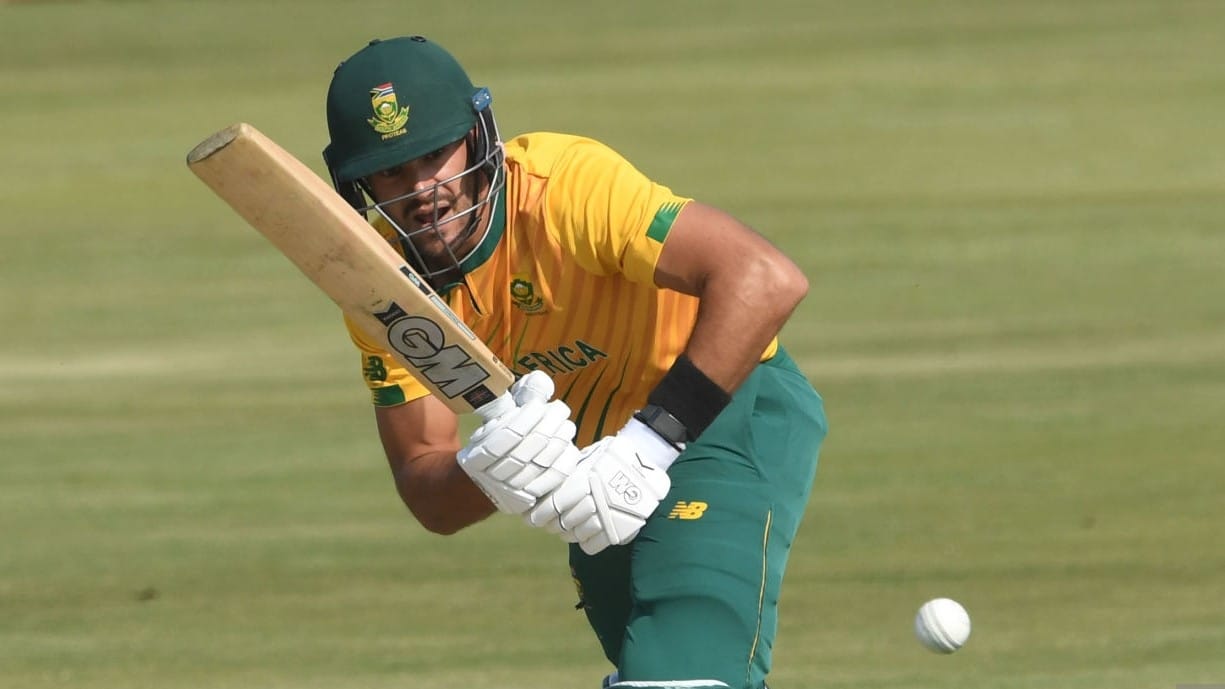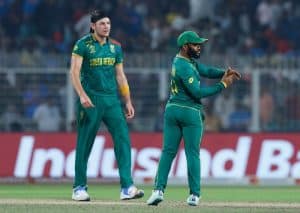In the absence of Faf du Plessis, Aiden Markram’s form will be absolutely crucial to the Proteas at the T20 World Cup, writes RYAN VREDE.
At the beginning of this year, Markram was largely a Test and ODI player. Now he is the heir to Faf du Plessis, who has been iced out of T20I cricket following his retirement from Tests.
Du Plessis’ omission from the T20 World Cup squad was largely predictable. He’d been consistently overlooked for selection when available, the selectors making a strong statement about moving forward without him.
Du Plessis is the fourth-highest run-scorer in this year’s Indian Premier League (he also averaged 40 in last season’s tournament), making that selection snub look more foolish by the day.
However, lamenting that now is pointless. One has to look to the future, and the Proteas selectors have determined that future is Markram.
He averages 35 after 13 T20I innings, having scored four half-centuries in that period, and accumulated his runs at a strike rate touching 150. His usefulness as a part-time spin bowler amplifies his value.
But he is primarily the glue that binds the top and middle order. He has batted at No 3 for the majority of his 13 international innings, developing his game to where he is as competent in maintaining momentum after a strong start from the openers, as he is at rebuilding the innings with the middle order.
Critically, he played beautifully against spin when Pakistan toured earlier this year, and continued that form in Colombo against Sri Lanka’s arsenal of spinners. The strength of those performances earned him a gig with Punjab Kings in the IPL, where he averaged just shy of 30 across six innings.
There he batted in the middle order, exposing him to a different set of challenges that the Proteas will hope to benefit from.
“Guys who consistently finish games well in terms of high strike rates and the ability to find the boundary having just walked to the crease is something I’ve got a new appreciation for,” Markram said. “Because if you walk in and a team is 30-3, and you need to build a partnership to get to something that’s half defendable. Neither of those roles are easy.”
These are roles Du Plessis acquitted himself well of, and ones Markram will have to excel in if the Proteas are to arrest their chronic batting inconsistency, particularly on wickets in Abu Dhabi and Sharjah that will demand high levels of adaptability and skill.
“Each ground was different. That was something I didn’t expect; I thought it would be quite generic. But each ground had its own set of challenges,” Markram said. “The pitches weren’t the easiest to bat on, but as the batter gets in he can still take the game away from the opposition. It’s tougher for newer batters coming in. Sharjah was probably the toughest batting wicket out of the three here, and Abu Dhabi was probably the nicest to bat on.”
The Proteas selectors have set themselves up for heavy criticism if their team comes up short on the batting front in the absence of a recognised T20 star in Du Plessis.
However, they’ve hung their hat firmly on Markram’s hook, and they’ll look like geniuses if their decision to invest in the 27-year-old brings the massive returns it has the potential to.
Photo: Lee Warren/Gallo Images/Getty Images





